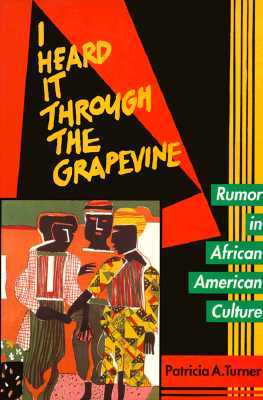Many black Americans are convinced that they are the targets of a vast array of white-authored schemes designed to spike their food with contraceptives; force them to engage in self-destructive behavior, especially drug addiction; and kill them, to use their bodies for medical experiments or out of simple malice. In her new book I Heard It Through the Grapevine, Professor Patricia Turner of the University of California-Davis recounts some of the rumors circulating among blacks of these alleged conspiracies on the part of white Americans.
For example, Kool and Marlboro cigarettes, Coors beer. Tropical Fantasy (a soft drink), and Church’s and Kentucky Fried Chicken are among the items widely believed to contain secret ingredients that sterilize black males. (The exploding urban black illegitimacy rate suggests that this campaign is not working.) Although there is no tasteless, odorless drug that can selectively sterilize blacks, so persistent are these “urban legends” that the Food and Drug Administration has been called in to conduct expensive tests of fried chicken and soft drinks. The Ku Klux Klan (sometimes in cooperation with South African interests) is believed to be the moving force behind the distribution of tainted food, as well as the maker of the popular athletic wear that urban blacks literally kill for. Adidas, Converse, Nike, and Reebok are among the businesses rumored to be owned by the Klan or by South African companies, or both. One company, which sold clothes under the Troop label, eventually went bankrupt after its brand name was said to stand for “To Rule Over Oppressed People,” and the linings of its jackets and shoes were supposed to contain messages like “Thank you, nigger, for making us rich.”
Professor Turner reports that many blacks are convinced that the federal government is harvesting them for use in medical research. As an instance of this she cites the string of 28 black children murdered in Atlanta between 1979 and 1981. Though Wayne Williams, a black homosexual record promoter, was convicted for the crimes, rumor persists that he was railroaded into prison and that the real culprit was the Atlanta-based federal Center for Disease Control, which supposedly used their bodies for cancer research or, alternatively, to extract a fluid found only in black testicles. While the government has, in effect, been subsidizing the black birthrate through various Great Society welfare programs, opinion polls indicate that more than half of all blacks are convinced that the government is likely involved in a number of genocidal plots directed against them. Chief among these are the proliferation of drugs throughout the inner cities, and—even more sinister—the introduction of the AIDS virus, believed to have been hatched in a government laboratory.
The author emphasizes that these tales are given credence by educated blacks, not just ghetto dwellers. Professor Turner relates that when she provided Believers with empirical evidence to the contrary, they accused her of being “taken in” by the White Power Structure. An aspect of this topic that Turner does not explore is what some of the consequences of this rumormongering may be for whites. If even college-educated blacks believe that whites are contaminating food and fostering genocidal programs, is it any wonder that black violence against whites is escalating?
[I Heard It Through the Grapevine: Rumor in African-American Culture, by Patricia A. Turner (Berkeley: University of California Press) 276 pp., $25.00]

Leave a Reply